Crossing borders: Hadley author’s short story collection explores the human stories behind immigration
| Published: 01-11-2024 11:09 AM |
On the U.S.-Mexican border, a desperate mother sends her young daughter alone across a bridge over the Rio Grande to try make it into Texas. In New York City, a Jewish woman confronts the hole in her heart when she thinks of her former Muslim husband, suddenly vanished from her life.
And in a small town in Vermont, a young college graduate not given to deep thinking faces a harsh reality when customs agents bang on her door, looking for a Latino immigrant she’s recently gotten involved with.
In “Immigrants,” her first collection of short stories, Hadley author D. Dina Friedman has pulled material from the news and from both her imagination and own experience to look at the different ways immigrants impact our lives — and to show the human side of those looking for a new life in America.
“It’s really easy to make immigrants the villain or to see them as the ‘other,’ especially today,” Friedman said in a recent phone call. “Even well-meaning people at some level can make generalizations about them.
“But every immigrant has a story, a personal story, that can get lost in all the political back and forth,” she said.
Not all of the 14 stories in Friedman’s collection, published by Creators Publishing of California, are centered on immigrants, nor are immigrants necessarily the central characters in the others.
Instead, Friedman introduces a number of American characters and narrators, both first person and third person, whose lives are impacted in various ways by encounters with people from other countries.
For instance, Kat, the narrator of “Ganesh Ascends to Heaven,” accidentally hits and kills an elderly Indian American man, an artist, in a crosswalk with her car. Looking to do some kind of penance, she goes to India to tour sacred temples and shrines, since the elderly artist, Prakesh Patel, had painted portraits of Hindu deities.
Article continues after...
Yesterday's Most Read Articles
 ‘Home away from home’: North Amherst Library officially dedicated, as anonymous donor of $1.7M revealed
‘Home away from home’: North Amherst Library officially dedicated, as anonymous donor of $1.7M revealed
 Around Amherst: Bockelman joins in launch of governor’s housing push
Around Amherst: Bockelman joins in launch of governor’s housing push
 June dates set for big school vote in Belchertown
June dates set for big school vote in Belchertown
 Ken Rosenthal: Time to change direction on Jones Library
Ken Rosenthal: Time to change direction on Jones Library
 Political newcomer defeats Shores Ness for Deerfield Selectboard seat
Political newcomer defeats Shores Ness for Deerfield Selectboard seat
 Town manager’s plan shorts Amherst Regional Schools’ budget
Town manager’s plan shorts Amherst Regional Schools’ budget
Wrestling with her grief and guilt, and with a troubled marriage, Kat struggles to make some kind of emotional connection with the Indian man, a Mr. Dahbesh, who is driving her on her tour. And as she contemplates the coming trial she’ll face for her accident, she faces another question: Should she contact Patel’s son to tell him how sorry she is?
Friedman, a former writing teacher and lecturer for business students at the University of Massachusetts Amherst, previously published two Young Adult novels, as well as a collection of poetry, “Wolf in the Suitcase.”
But several years ago, she said, she turned more to short stories, in part after getting stuck with a new novel she was working on.
“I wanted to try something different,” she said.
At that time, Donald Trump had become president, and his new immigration policies, from building a wall along the entire southern U.S. border, to separating migrant children from their families, were sparking fierce debate. Friedman found herself thinking increasingly about immigration herself.
“It wasn’t like I sat down and decided to write short stories about immigration, although [Trump’s] take on it broke my heart,” she said. “But that theme started expressing itself in my characters and my stories.”
Friedman has also been part of Jewish activists for Immigration Justice of Western Massachusetts, a group that calls for reforming national immigration policies. She and others in the organization traveled to Florida in 2019 to observe a children’s detention center and in 2020 to aid migrants on the Mexican side of the border near Brownsville, Texas.
Those experiences, she said, “really brought home to me the incredible risks and hardships people take in making these journeys, hoping for a better life … It was a reminder that our country was built on immigration.”
Friedman says being Jewish is also a big part of her identity, and that background factors into some of her stories. For centuries, she notes, Jews were viewed with suspicion or hostility by some and subjected to horrific violence.
“At some level we all carry the trauma of the Holocaust,” Friedman said, noting that some of her ancestors fled pogroms in Eastern Europe in the late 19th and early 20th centuries to come to the U.S.
In that sense, some of the characters in her stories feel a bond with immigrants, even if there are language and cultural barriers between them.
In “Genealogy,” Hannah, an elderly Jewish woman in New York who’s confined to her home during COVID-19, is researching her family history. She’s trying to find a solid link to a story handed down for generations by her descendants that a distant ancestor had been murdered in Europe during an outbreak of bubonic plague, accused of poisoning her village’s wells.
Hannah has begun to miss Isabel, the Colombian American woman who cleans her apartment but is staying home during the pandemic. Hannah could use her company, even if Isabel had sometimes annoyed her when she “went on and on about her sprawling family … Isabel’s life was a regular telenovela.”
But then one day Isabel calls Hannah in a panic: Her brother Paco has been arrested and faces possible deportation. Can Hannah help her with bail money? She needs $20,000.
Hannah, holding the phone, “struggles for words that could acknowledge the clot of shared history and tragedy transcending tribal connections.”
Other stories explore unusual connections between people, sometimes with humor. Barb, a middle-age white woman at the center of “Infiltrators,” is having plenty of problems. Her husband has left her for a younger woman, and she rents rooms to local college students to make ends meet.
But her current tenant, Laura, a young Chinese American student, says she’s been bitten by bedbugs and is going to move out, sending Barb into frantic attempts to try and de-bug her house on a shoestring budget.
But the problem might actually be linked to an infiltration of a more serious pest. What is Barb going to tell Laura, about whom she feels kind of motherly — and whose rent money she really needs?
Friedman’s first-person narrators in particular can be quite wry at times, like Samantha in “Happily Ever After,” who has a date with a man she’s met through an online dating site and finds him in a coffee shop “chowing on a bagel … a smidgen of cream cheese spread like amoeba tentacles on his walrus mustache.”
“I hated mustaches,” says Samantha. “In his Match.com picture, he’d been clean-shaven. At least he wasn’t forty pounds heavier or twenty years older, as some of them were. They should change the name of that site to DatingDeception.”
But overall, “Immigrants” strikes a serious tone. “The Bridge,” in which the woman in Mexico sends her young daughter alone across the U.S. border, is a heartbreaking portrait of different people caught up in a desperate situation.
Yet moving through most of the stories are the kinds of universal themes life is made of: love and loss, happiness and sorrow, hope and connection. The added thrust is the uncertainty and ambiguity in how people from different cultures and backgrounds can perceive each other.
“These are really stories out of my heart,” said Friedman. “Some are more political than others, but really what’s at their center are human stories.”
Friedman will read from and discuss “Immigrants” at the Odyssey Bookshop in South Hadley on Jan. 23 at 7 p.m.
Steve Pfarrer can be reached at spfarrer@gazettenet.com.


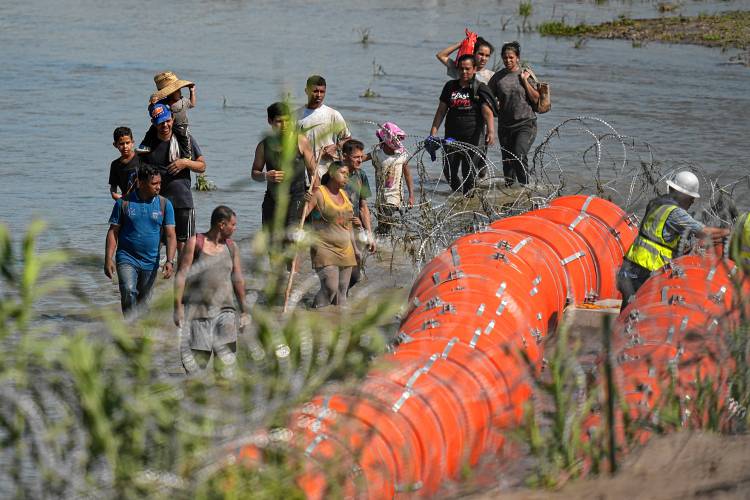
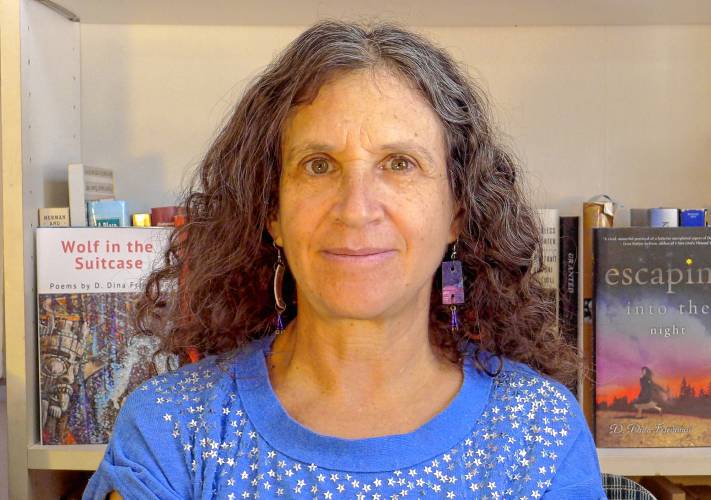
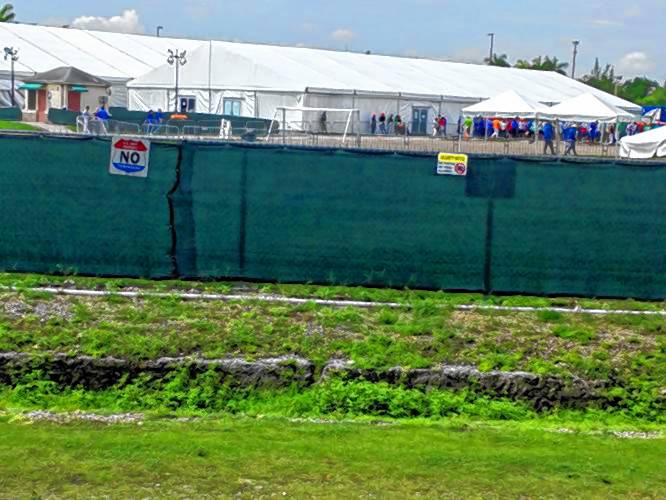
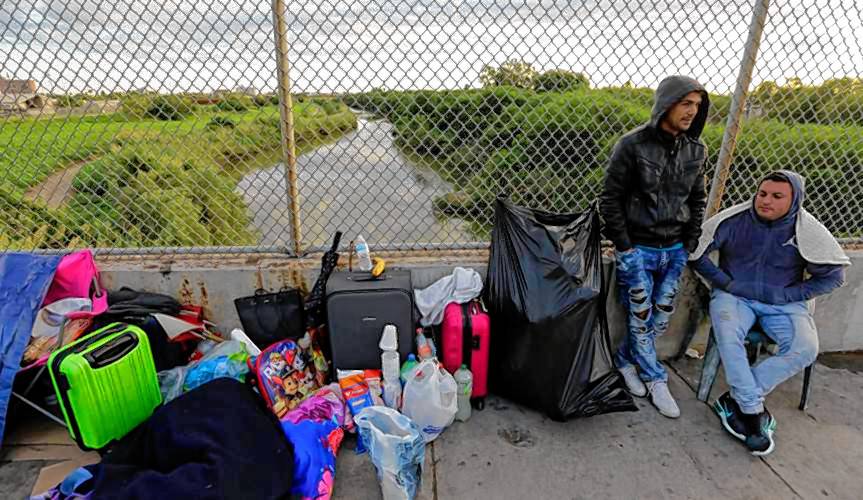
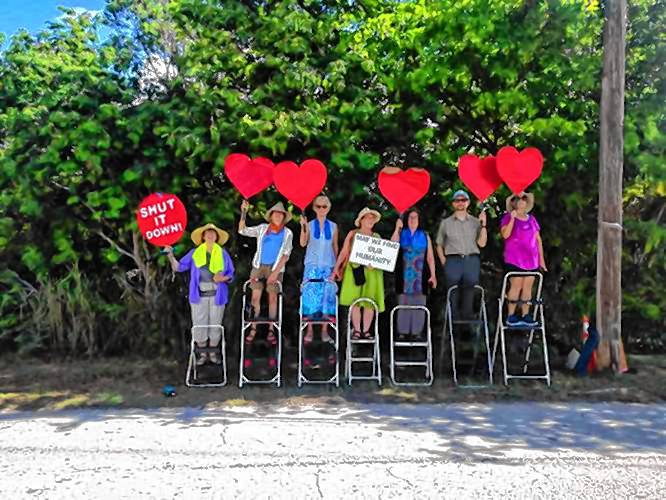
 A DIY approach to flying: Local pilots build and help build their own aircraft
A DIY approach to flying: Local pilots build and help build their own aircraft You’re up next: Western Mass open mic scene heats up post-pandemic
You’re up next: Western Mass open mic scene heats up post-pandemic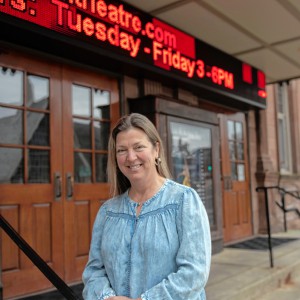 One upon a story slam: This year’s Valley Voices winners head to a final competition
One upon a story slam: This year’s Valley Voices winners head to a final competition Preserving a key part of Emily Dickinson’s legacy: Historic Evergreens house reopens at the Emily Dickinson Museum
Preserving a key part of Emily Dickinson’s legacy: Historic Evergreens house reopens at the Emily Dickinson Museum